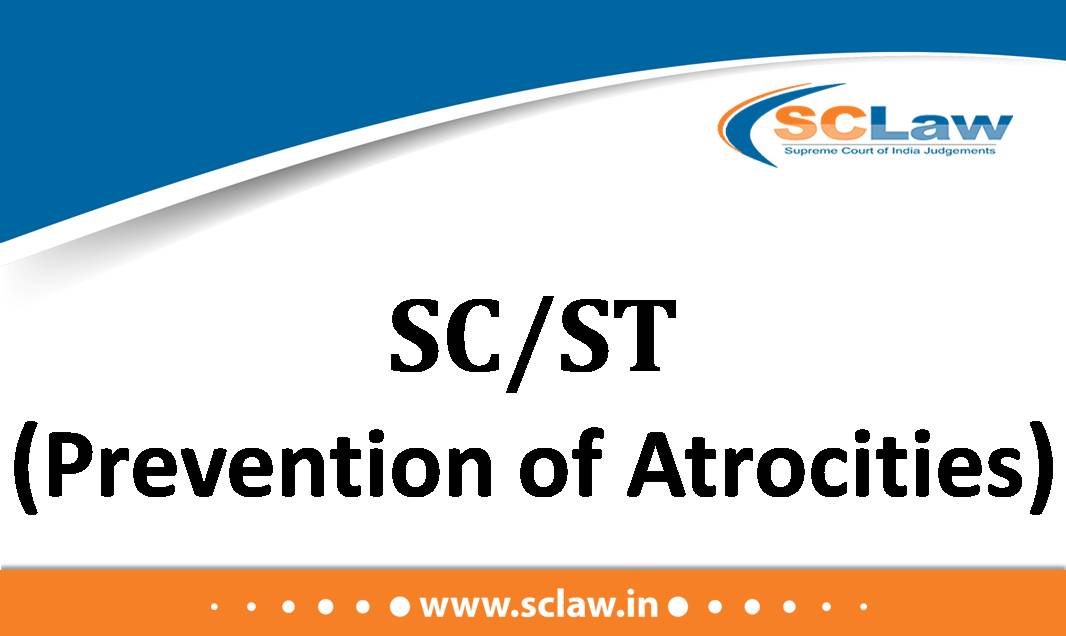Courts will not enforce unfair or unreasonable contracts, particularly when there is an imbalance of power between the parties, and forfeiture of earnest money must be reasonable and not a penalty.
2025 INSC 143 SUPREME COURT OF INDIA DIVISION BENCH GODREJ PROJECTS DEVELOPMENT LIMITED Vs. ANIL KARLEKAR AND OTHERS ( Before : B.R. Gavai and S.V.N. Bhatti, JJ. ) Civil Appeal…
The Supreme Court allows High Courts to appoint ad-hoc Judges under Article 224A, exceeding the 20% vacancy limit, to address the backlog of pending cases, with a cap of 10% of the sanctioned strength
SUPREME COURT OF INDIA FULL BENCH LOK PRAHARI THROUGH ITS GENERAL SECRETARY S.N.SHUKLA I.A.S. (RETD) Vs. UNION OF INDIA AND OTHERS ( Before : Sanjiv Khanna, CJI, B.R. Gavai and…
The eligibility criteria for recruitment cannot be altered midway after the process has commenced, as it violates the constitutional guarantee of equal opportunity under Article 16.
2025 INSC 134 SUPREME COURT OF INDIA DIVISION BENCH PARIMAL KUMAR AND OTHERS Vs. THE STATE OF JHARKHAND AND OTHERS ( Before : J.K. Maheshwari and Rajesh Bindal, JJ. )…
Holders of Form 25 licenses under the Drugs and Cosmetics Act are not violating conditions by altering and repacking drugs for sale, and procedural irregularities in issuing process warrants quashing of proceedings.
2025 INSC 128 SUPREME COURT OF INDIA DIVISION BENCH INOX AIR PRODUCTS LIMITED NOW KNOWN AS INOX AIR PRODUCTS PRIVATE LIMITED AND ANOTHER Vs. THE STATE OF ANDHRA PRADESH (…
Magistrates must provide reasoned orders when issuing process against accused persons in criminal cases, as the absence of reasons leads to the quashing of proceedings
2025 INSC 127 SUPREME COURT OF INDIA DIVISION BENCH M/S. JM LABORATORIES AND OTHERS Vs. STATE OF ANDHRA PRADESH AND ANOTHER ( Before : B.R. Gavai and Augustine George Masih,…
The polluter is absolutely and continuously liable for environmental damage until the damage is reversed, and the government must enforce environmental laws, ensure compensation, and implement restoration measures.
2025 INSC 131 SUPREME COURT OF INDIA DIVISION BENCH VELLORE DISTRICT ENVIRONMENT MONITORING COMMITTEE REP. BY ITS SECRETARY MR. R. RAJEBDRAN Vs. THE DISTRICT COLLECTOR, VELLORE DISTRICT AND OTHERS (…
Offence under Sections 3(1)(r) and 3(1)(s) of the SC-ST Act to be made out, the act of insult or intimidation must occur in a place “within public view,” and if the incident occurs in a private space without public witnesses, it does not satisfy the requirements of the Act. Consequently, the court can quash the proceedings if the allegations do not prima facie constitute an offence under the SC-ST Act.
2025 INSC 132 SUPREME COURT OF INDIA DIVISION BENCH KARUPPUDAYAR Vs. STATE REP. BY THE DEPUTY SUPERINTENDENT OF POLICE, LALGUDI TRICHY AND OTHERS ( Before : B.R. Gavai and Augustine…
Conviction under Section 304-B IPC, the prosecution must prove that the deceased was subjected to cruelty or harassment in connection with a dowry demand soon before her death, and in the absence of such proof, the accused must be acquitted
2025 INSC 133 SUPREME COURT OF INDIA DIVISION BENCH KARAN SINGH Vs. STATE OF HARYANA ( Before : Abhay S. Oka and Ujjal Bhuyan, JJ. ) Criminal Appeal No. 1076…
Hindu Marriage Act, 1956 — Sections 12 and 13 — Family Courts Act, 1984 — Sections 6 and 9 — Irretrievable breakdown of marriage — Where the parties have agreed to a divorce but are in dispute over maintenance or permanent alimony, the court must determine the quantum of maintenance based on a balanced consideration of various factors, including the financial status of both parties, the standard of living during the marriage, and the reasonable needs of the dependent spouse — The court should aim to ensure that the dependent spouse is not reduced to destitution, while also avoiding an unreasonable financial burden on the other spouse.
2025 INSC 135 SUPREME COURT OF INDIA DIVISION BENCH SAU. JIYA Vs. KULDEEP ( Before : Vikram Nath and Prasanna B. Varale, JJ. ) Civil Appeal No….of 2025 (SLP (C)…
Employees appointed against sanctioned posts, even on a temporary or part-time basis, are entitled to regular pay scales after completing three years of service under relevant government circulars.
2025 INSC 136 SUPREME COURT OF INDIA DIVISION BENCH RAKESH KUMAR CHARMAKAR AND OTHERS Vs. THE STATE OF MADHYA PRADESH AND OTHERS ( Before : Vikram Nath and Prasanna B.…














